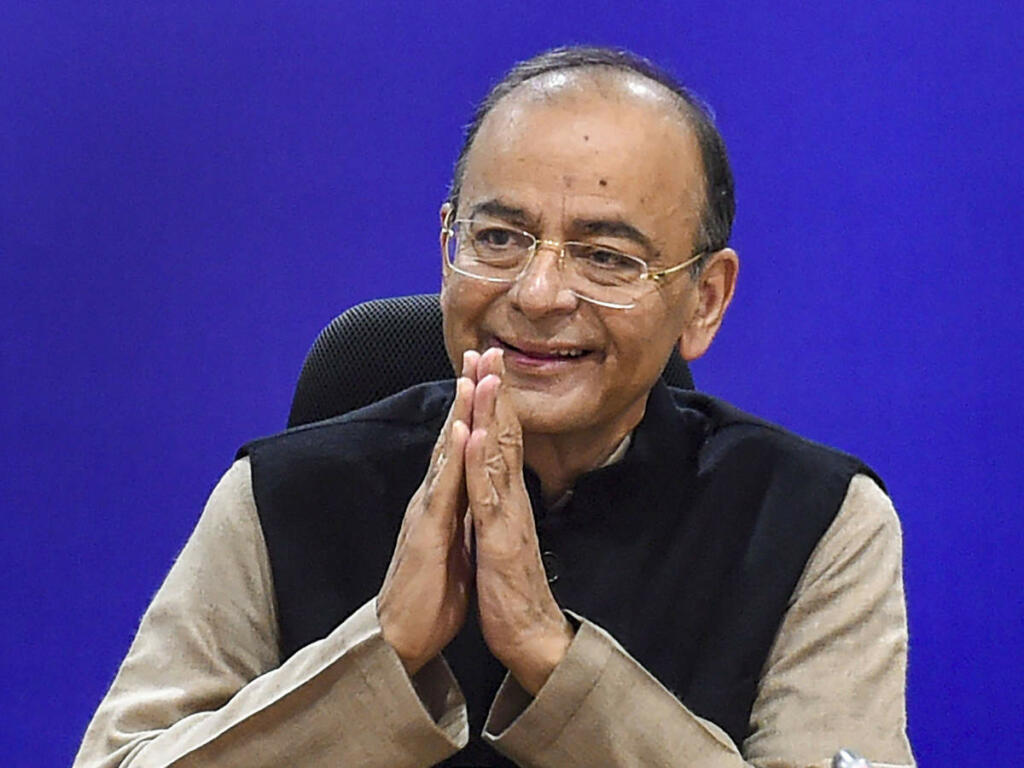The biggest conundrum the policymakers face is that good economics is bad politics, and bad economics is good politics. Therefore, it is very rare to find a political leader who can implement politically sustainable economic reforms and ensure that good economics makes good politics. Former Union Finance Minister Late Arun Jaitley was one such leader. He showed the ability to implement long-pending economic reforms that were embroiled in political trouble.
In fact, such was Jaitley’s persona, that his policies remain the fulcrum of India’s economic policy. He passed away on August 24, 2019. It has been two years since Jaitley left this world, but his policies continue to live on and positively impact the country.
If we take a look at Late Arun Jaitley’s journey as the Union Finance Minister, he took charge of affairs in 2014 after the Modi government came to power. At this juncture, India’s economic growth was seriously hampered by a slowdown due to the policy paralysis that preceded the Modi government’s rise to leadership.
Read More: An Ode to Arun Jaitley, the unsung and often misunderstood hero
However, under the direction of Jaitley, the government implemented some of the most awaited reforms like Insolvency and Bankruptcy Code, GST, the Real Estate (Regulation and Development) Act, 2016 and institutionalization of inflation targeting. Late Arun Jaitley was able to build strong macroeconomic foundations for the purpose of powering high and sustainable economic growth rates in the country.
Some of the decisions taken during Jaitley’s tenure as the Finance Minister had to be enforced with expert political management. Take GST, the single indirect tax regime, for instance. The Goods and Services Tax (GST) was pending as a reform owing to reservations of some states. However, the former Finance Minister managed to bring the states on board for the implementation of the GST.
Similarly, a very bold move was made with the announcement of demonetization as a part of the Modi government’s object to formalize the Indian economy and crackdown on black money transactions.
Some of Jaitley’s reforms started showing effect during his tenure as the Finance Minister, and some effects are becoming visible now. Don’t forget that he took charge of a dipping economy in 2014, but within a few months of his appointment as the Finance Minister, India’s economy started picking up. Moreover, tax net increase almost doubled under his tenure and over the past few years, a spate of economic reforms have propelled India’s ease of doing business ranking, to new highs.
In fact, Jaitley remains an invisible factor in the Modi government even two years after his demise. Being the great leader that he was, Jaitley mentored an entire generation of impeccable leaders. Today, his proteges are among the most important, most efficient and most responsible ministers in the Modi cabinet and the council of ministers.
Arun Jaitley mentored the likes of Nirmala Sitharaman, Piyush Goyal, Dharmendra Pradhan and others. Today, these ministers hold some of the most important and consequential portfolios. Additionally, these are all ministers who are favoured by Prime Minister Narendra Modi himself, and from them, Arun Jaitley is still reflected. Arun Jaitley was a dear friend of PM Modi, and as such, his proteges connect with the Prime Minister, like very few usually do.
In fact, Ministers like Goyal and Sitharaman are assigned the most difficult of tasks in the Modi government like transforming entire ministries or taking charge of the Indian economy in the midst of the COVID-19 Pandemic respectively.
Similarly, Dharmendra Pradhan, previously the Petroleum and Natural Gas Minister, has been recently allocated to the Education Ministry. The Education sector in India needs to be overhauled and to lead and oversee the same, PM Modi would have nobody but his very trusted Dharmendra Pradhan doing the job.
Arun Jaitley is no more. His absence has been felt deeply by the country over the past two years since his demise. Yet, Jaitley may no longer be alive, but his legacy lives on.
